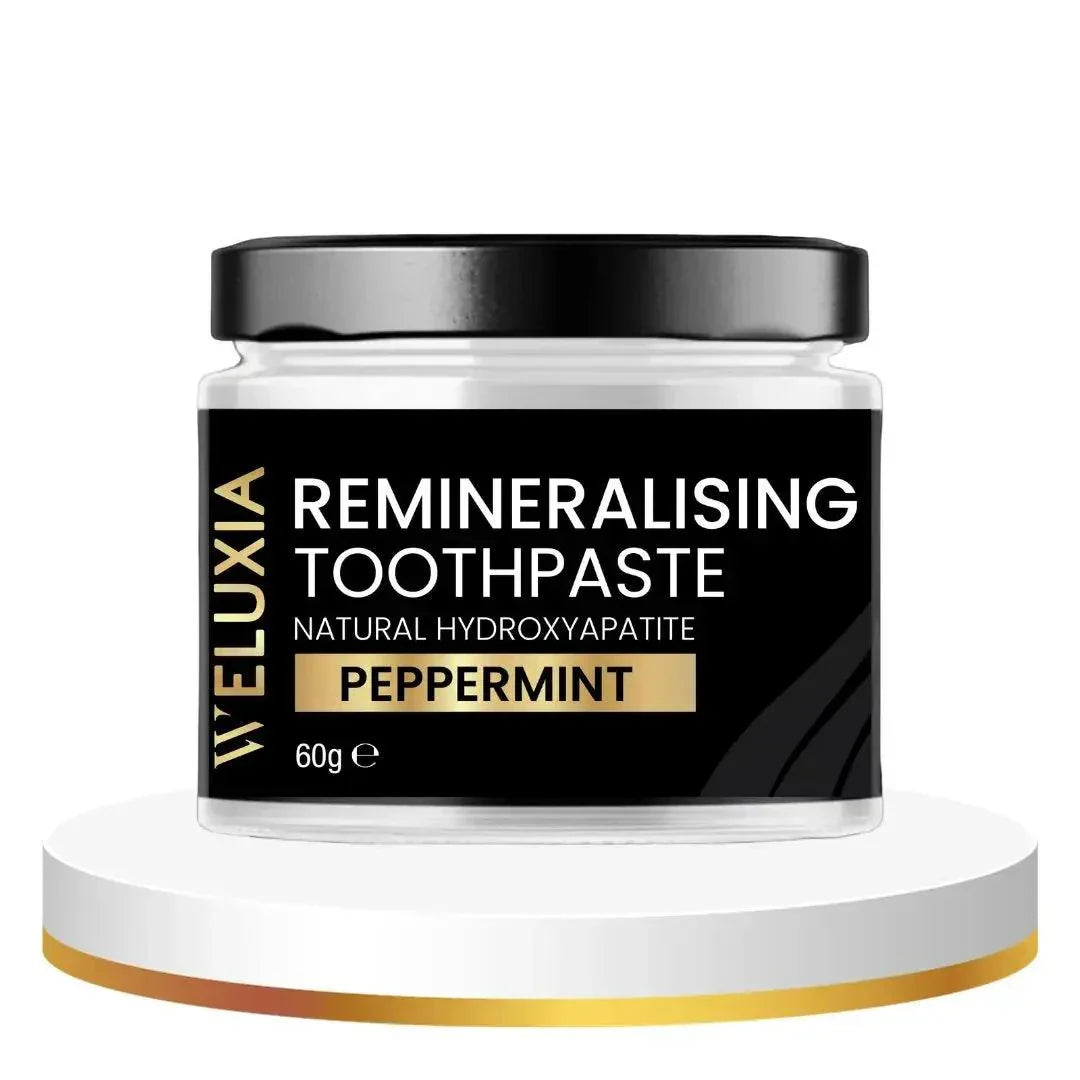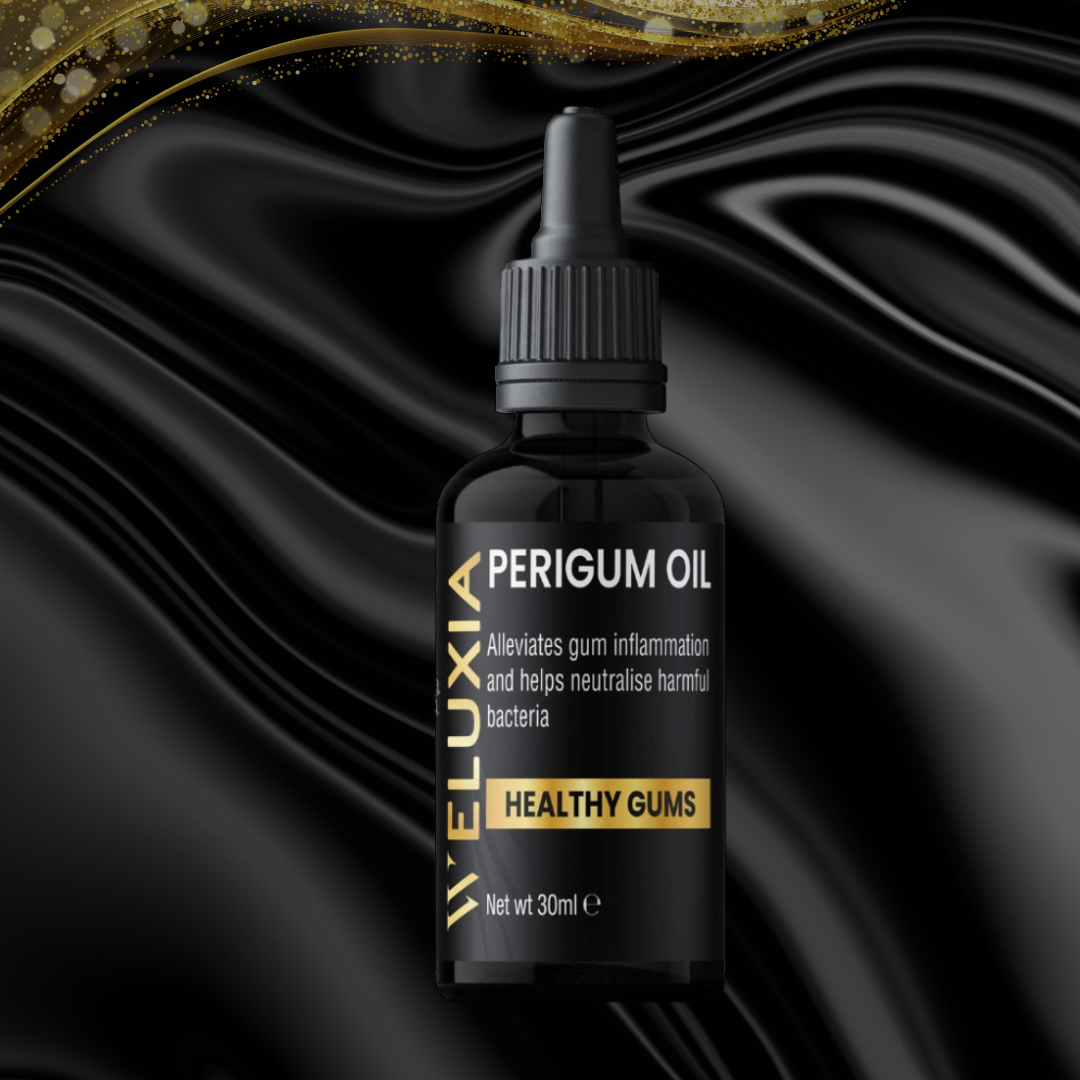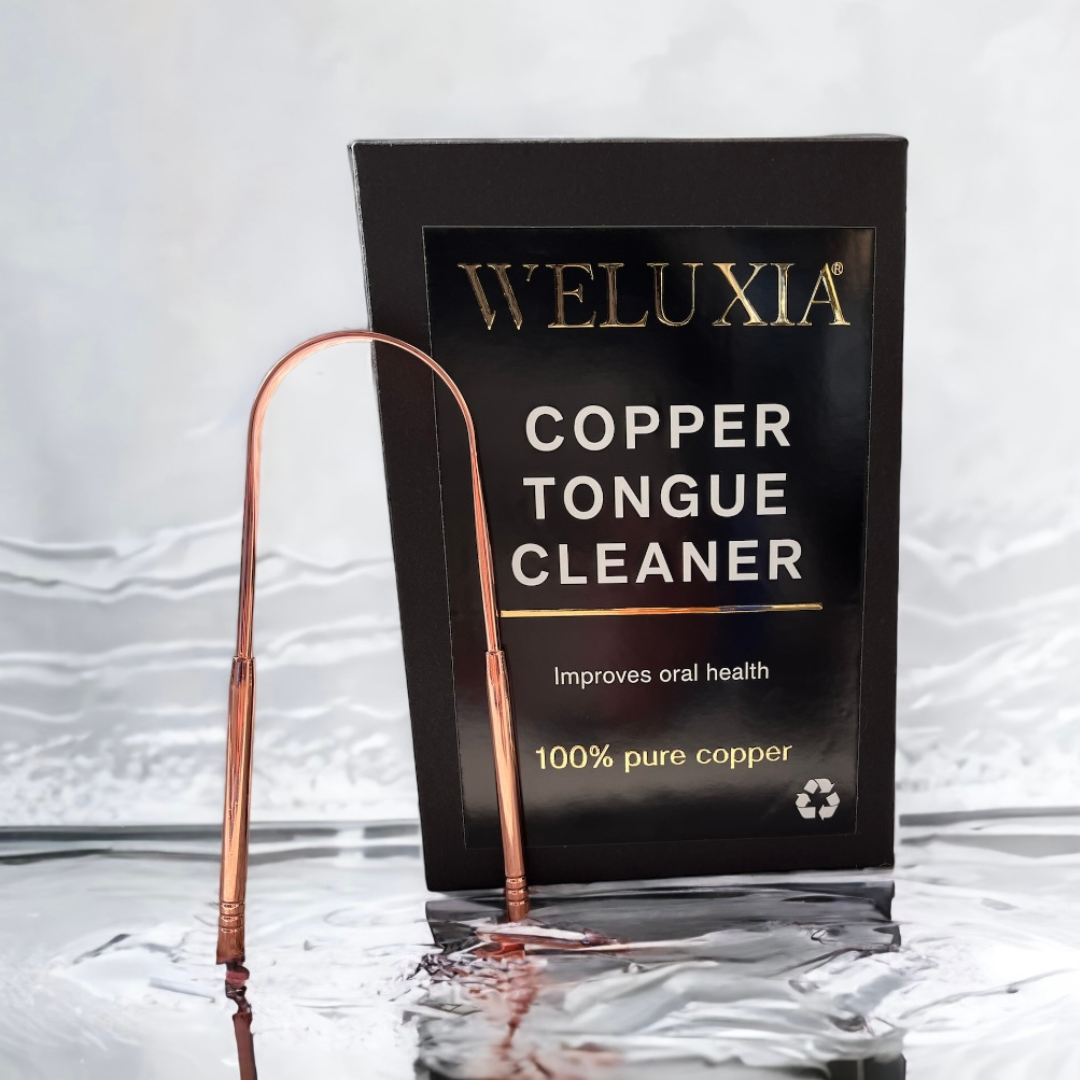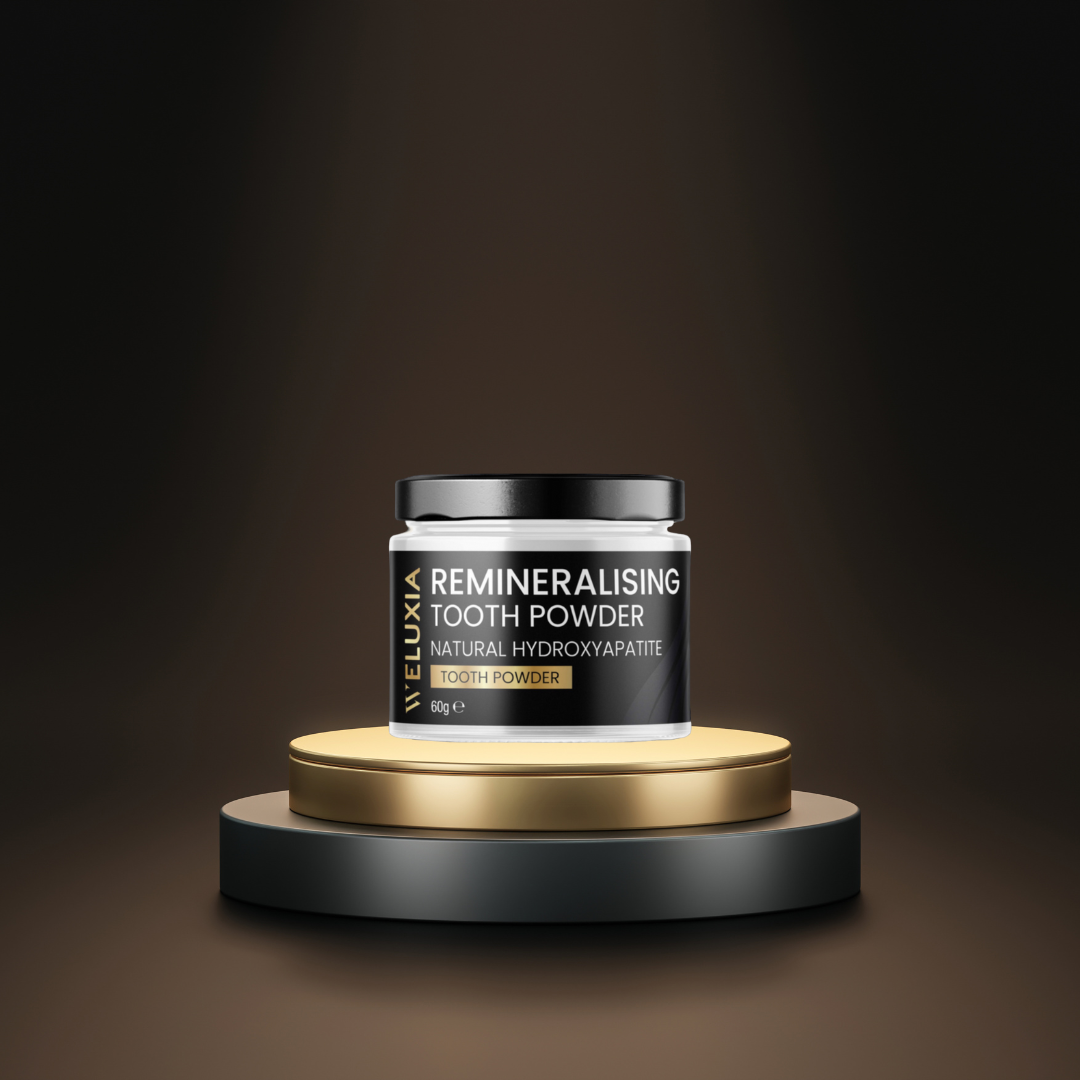If you're looking for a natural toothpaste that does more than just clean your teeth, hydroxyapatite may be worth trying. This powerful ingredient helps to remineralize teeth, preventing cavities and sensitivity while also whitening teeth! Our all natural hydroxyapatite toothpaste is fluoride and preservative free.
If you're looking for a new toothpaste to add to your oral care routine, you've likely heard of hydroxyapatite toothpaste. This innovative toothpaste is gaining popularity for its unique properties and potential benefits for your teeth and gums. In this article, we'll explore what hydroxyapatite is, how it works, and the advantages it offers over traditional fluoride-based toothpaste.
Key Takeaways:
- Hydroxyapatite toothpaste can support tooth remineralization and repair damaged enamel.
- It offers benefits such as improved enamel strength, cavity prevention, reduced tooth sensitivity, and enhanced whitening.
- Hydroxyapatite and fluoride are two popular toothpaste ingredients that have different advantages and drawbacks.
- Hydroxyapatite toothpaste has been approved by dental associations and considered safe for use.
- Choosing the right hydroxyapatite toothpaste and incorporating it into your oral care routine can help maximize its benefits.
What is Hydroxyapatite?
Hydroxyapatite is a mineral that naturally occurs in our bodies, primarily in our bones and teeth. In fact, it makes up about 70% of the inorganic part of our tooth enamel, giving it its strength and durability.
The chemical formula for hydroxyapatite is Ca10(PO4)6(OH)2. This means that its molecular structure consists of various elements, including calcium, phosphorus, and oxygen, which all work together to form a strong and resilient compound.
Hydroxyapatite has a vital role in maintaining good oral health, as it's responsible for repairing any damage to our teeth and rebuilding lost enamel. This is where hydroxyapatite toothpaste comes into play, utilizing the mineral in a concentrated form to provide targeted benefits to our teeth.
How Does Hydroxyapatite Toothpaste Work?
Hydroxyapatite toothpaste works by promoting the remineralization of your teeth and repairing damaged enamel. It contains tiny particles of hydroxyapatite, which is a mineral found in your teeth and bones. When you brush with hydroxyapatite toothpaste, these particles are deposited onto your teeth and bond with your enamel, strengthening it and restoring its natural mineral content. This process helps to repair and protect your teeth against decay, erosion, and sensitivity.
One of the unique properties of hydroxyapatite toothpaste is its ability to effectively substitute for fluoride-based toothpaste. Studies have shown that hydroxyapatite toothpaste provides comparable protection against cavities and acid erosion against traditional fluoride-based toothpaste. However, unlike fluoride-based toothpaste which works by coating the teeth and creating a barrier, hydroxyapatite toothpaste works by naturally restoring the minerals in your teeth.
The Benefits of Using Hydroxyapatite Toothpaste
Hydroxyapatite toothpaste is a rising star in oral care products. It provides numerous benefits over traditional fluoride-based toothpaste. Here, we will discuss some of the notable benefits of using hydroxyapatite toothpaste.
1. Improved Enamel Strength
Enamel is the outermost layer of teeth that protects them from wear and tear. The hydroxyapatite particles in this toothpaste can heal and strengthen teeth enamel, reducing the risk of tooth decay and sensitivity.
2. Cavity Prevention
The high concentration of hydroxyapatite in toothpaste can fill cavities and help remineralize teeth, preventing cavities and tooth decay.
3. Reduced Tooth Sensitivity
Hydroxyapatite's remineralizing properties help reduce tooth sensitivity, making it an excellent product for those with sensitive teeth.
4. Enhanced Whitening
With regular use, this toothpaste can remove surface stains and whiten teeth naturally, giving you a bright, confident smile.
There are many other benefits to using hydroxyapatite toothpaste that make it a preferable alternative to traditional toothpaste. These include its ability to help prevent gum disease and promote overall oral health.
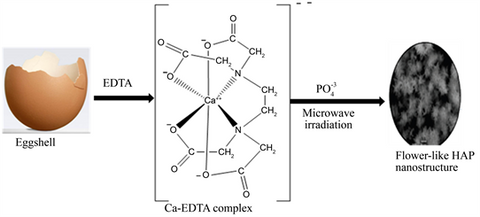
Hydroxyapatite vs. Fluoride: Which is Better?
When it comes to choosing a toothpaste, the debate between hydroxyapatite and fluoride seems to be never-ending. Both are popular ingredients that claim to strengthen teeth and prevent cavities, but which one is better for you? Let's examine their differences.
Hydroxyapatite
Hydroxyapatite is a natural mineral found in teeth that helps to strengthen enamel and promote remineralization. When used in toothpaste, it can help repair damage and reduce tooth sensitivity.
Fluoride
Fluoride, on the other hand, is a chemical element that's added to toothpaste to help prevent tooth decay. It works by strengthening tooth enamel and making teeth more resistant to acid and plaque.
| Hydroxyapatite | Fluoride | |
|---|---|---|
| Strengthens tooth enamel | Yes | Yes |
| Promotes remineralization | Yes | No |
| Repairs damaged enamel | Yes | No |
| Reduces tooth sensitivity | Yes | No |
| Prevents cavities | No | Yes |
| Added chemicals | No | Yes |
| Safety concerns | Only with Nano | Somewhat controversial |
Based on the table above, it's clear that each ingredient has its own advantages and drawbacks. While hydroxyapatite can repair damaged enamel and reduce tooth sensitivity, fluoride is effective at preventing cavities. However, some people have concerns about the safety of fluoride due to its potential toxicity in high doses.
Ultimately, the decision comes down to personal preference and your specific dental needs. If you're looking for a natural alternative to traditional fluoride toothpaste, hydroxyapatite may be the way to go. But if you're more concerned about preventing cavities and don't mind the added chemicals, fluoride toothpaste might be the better choice.
Is Hydroxyapatite Toothpaste Safe to Use?
As with any oral care product, the safety of hydroxyapatite toothpaste is a valid concern for many people. However, dental associations around the world have approved its use and confirmed its safety for regular use.
Compared to traditional fluoride-based toothpaste, hydroxyapatite toothpaste has fewer potential side effects, such as fluorosis. Fluorosis is a condition that affects the appearance of tooth enamel due to excessive exposure to fluoride. Hydroxyapatite, on the other hand, is a natural component of teeth and has been shown to support the remineralization of enamel and reduce tooth sensitivity.
Potential Side Effects of Hydroxyapatite Toothpaste
While rare, some people may experience mild irritation or allergic reactions to certain ingredients in nano hydroxyapatite toothpaste and not natural.
Choosing a High-Quality Hydroxyapatite Toothpaste
By selecting Weluxia, you can feel confident in the safety and effectiveness of your hydroxyapatite toothpaste & toothpowders
How to Choose the Right Hydroxyapatite Toothpaste
Choosing the right hydroxyapatite toothpaste can make a big difference in maintaining healthy teeth and gums. Here are some factors to consider when making your selection:
Concentration
The concentration of hydroxyapatite in a toothpaste can vary, so be sure to check the label. Check to see if Nano hydroxyapatite is used as it has a maximum allowance.
Additional Ingredients
Consider any additional ingredients that the toothpaste may contain, such as fluoride or xylitol, to determine if they align with your dental needs or preferences.
Specialized Formulations
Some hydroxyapatite toothpastes are formulated for specific concerns, such as whitening or sensitivity. Determine if any specialized formulations are available and if they align with your dental goals.
Incorporating Hydroxyapatite Toothpaste into Your Oral Care Routine
If you're looking to switch to hydroxyapatite toothpaste or have already made the change, congratulations - you're on your way to achieving stronger, healthier teeth! But how do you make sure that you're getting the most out of this innovative toothpaste? Here are some tips on how to incorporate hydroxyapatite toothpaste into your daily oral care routine:
1. Brush Properly:
It's important to brush your teeth at least twice a day for two minutes each time. When using hydroxyapatite toothpaste, try to apply a small amount of paste onto your toothbrush and brush gently in circular motions, focusing on each tooth individually. Don't brush too hard, as this can damage your tooth enamel.
2. Complementary Dental Products:
Using oil pulling can provide additional benefits for your oral health. Additionally, consider incorporating dental floss and interdental brushes into your routine to keep your teeth and gums clean and healthy.
3. Routine Check-Ups:
Regular dental check-ups are essential for monitoring your oral health and detecting any issues early on. Make sure to visit a dentist twice a year and inform them that you're using hydroxyapatite toothpaste.
4. Be Patient:
As with any dental product, it may take some time before you start to see results. Be patient and consistent in your oral care routine, and you'll soon notice the benefits of using hydroxyapatite toothpaste.
By following these simple tips, you can ensure that you're getting the most out of hydroxyapatite toothpaste and investing in the long-term health of your teeth.
Hydroxyapatite Toothpaste: The Future of Oral Health?
While hydroxyapatite toothpaste is relatively new to the oral care market, ongoing research suggests that it could be an essential tool in the fight against tooth decay and other dental issues. More and more dentists are recommending hydroxyapatite toothpaste as a fluoride-free alternative that works just as effectively to prevent cavities and support enamel remineralization.
As the dental industry continues to evolve, it's reasonable to assume that the use of hydroxyapatite toothpaste will only grow. Researchers are currently exploring new and innovative ways to harness the benefits of hydroxyapatite to improve oral health outcomes.
In short, the future of hydroxyapatite toothpaste looks bright, with ongoing research and development suggesting that it could become the go-to choice for people looking to maintain healthy teeth and gums.
Conclusion
Weluxia Hydroxyapatite toothpaste offers an exciting alternative to traditional toothpaste options. Its unique composition allows it to effectively promote remineralization, prevent cavities, reduce tooth sensitivity, and enhance whitening.
When choosing a hydroxyapatite toothpaste, be sure to consider factors such as concentration and additional ingredients, and consult with your dentist for personalized recommendations.
By incorporating hydroxyapatite toothpaste into your oral care routine, you can enjoy the numerous benefits it offers for maintaining healthy teeth and gums.
So why not give it a try? Your smile will thank you!
FAQ
What is hydroxyapatite toothpaste?
Hydroxyapatite toothpaste is a toothpaste formulation that contains hydroxyapatite as its key active ingredient. Hydroxyapatite is a natural mineral that makes up the majority of our tooth enamel, and using toothpaste that contains this mineral can help support remineralization and strengthen tooth enamel.
How does hydroxyapatite toothpaste work?
Hydroxyapatite toothpaste works by depositing a thin layer of hydroxyapatite onto the tooth surface, which helps to repair damaged enamel and support tooth remineralization. It interacts with the minerals in saliva and the tooth surface to form a protective layer that helps to prevent cavities, reduce tooth sensitivity, and enhance enamel strength.
What are the benefits of using hydroxyapatite toothpaste?
The benefits of using hydroxyapatite toothpaste are numerous. It can help strengthen tooth enamel, prevent cavities, reduce tooth sensitivity, whiten teeth, and promote overall oral health. Additionally, it offers a fluoride-free alternative for those who prefer to avoid fluoride in their oral care products.
How does hydroxyapatite toothpaste compare to fluoride toothpaste?
Hydroxyapatite and fluoride are both effective ingredients for maintaining dental health, but they work in different ways. Fluoride helps to prevent cavities by remineralizing and strengthening enamel, while hydroxyapatite directly deposits the mineral onto the tooth surface. Hydroxyapatite toothpaste offers a fluoride-free alternative for those who have concerns about fluoride usage.
Is hydroxyapatite toothpaste safe to use?
Yes, natural hydroxyapatite toothpaste is considered safe to use. It has been approved by dental associations, and studies have shown no significant side effects associated with its use. However, if you have any specific concerns or conditions, it's always best to consult with your dentist or healthcare provider.
How do I choose the right hydroxyapatite toothpaste?
When choosing a hydroxyapatite toothpaste, consider factors such as the concentration of hydroxyapatite & the source ( ie nano), additional ingredients that align with your oral care needs (such as whitening agents or desensitizing properties), and any specialized formulations available for specific concerns (such as gum health).
How do I incorporate hydroxyapatite toothpaste into my oral care routine?
To incorporate hydroxyapatite toothpaste into your oral care routine, simply replace your regular toothpaste with a hydroxyapatite-based option. Brush your teeth thoroughly for two minutes, at least twice a day, and remember to also clean your tongue and gums. Additionally, continue flossing daily and visiting your dentist regularly for professional cleanings and check-ups.
What does the future hold for hydroxyapatite toothpaste?
Hydroxyapatite toothpaste shows great promise for the future of oral health. Ongoing research and advancements in formulation are focused on improving its effectiveness, developing new delivery methods, and expanding its applications in various oral care products. It has the potential to revolutionize oral care practices and provide innovative solutions for maintaining healthy teeth and gums.
References
https://www.nature.com/articles/s41405-019-0026-8
https://www.healthline.com/health/dental-and-oral-health/hydroxyapatite-toothpaste


